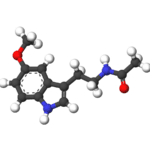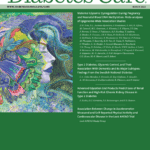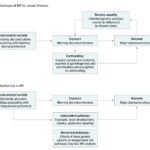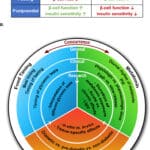Circadian rhythms are 24-hour cycles that regulate our daily activity throughout the day, otherwise known as a “molecular clock”. This internal biological clock governs the timing of our behavior, such as when do we eat, when we are most attentive, and when do we sleep. We study the genetic basis of natural variation in circadian rhythm phenotypes to better understand the molecular components of the clock machinery in humans, how environmental inputs synchronize the clock, and how the clock regulates behavior and ultimately may link with human health and disease. We also use genetics to explore the cellular and physiological consequences of timing of molecular processes.


Genetics of Circadian Rhythms
- What molecular pathways cause changes in daily biological rhythms such as morningness-eveningness preference?
- How does clock gene variation impact human physiology, behavior and disease?
- What genetic variation influences timing of gene expression?
- What molecular pathways cause changes in daily biological rhythms such as morningness-eveningness preference?
- How does clock gene variation impact human physiology, behavior and disease?
- What genetic variation influences timing of gene expression?
Projects

SHIFT Study – Impact of melatonin, food timing, and receptor variant on type 2 diabetes
This project aims to test the impact of melatonin and MTNR1B variation on glucose control and risk of type 2 diabetes in an observational study of night shift workers and natural late-night eaters.
Genetics of chronotype and impact on metabolic disease
The project aims to define the genetic basis of subjectively and objectively assessed chronotype, characterize the functional molecular, cellular, and physiologic consequences of causal genes, and variants, and dissect shared genetic relationships between chronotype and metabolic disease outcomes.
News

How timing of dinner and genetics affect blood sugar level control
Health Europa
,
January 26, 2022

A Genetic Basis for Insomnia Emerges from the Twilight
Scientific American
,
March 12, 2019

Morning or night person? It depends on many more genes than we thought
The Conversation
,
January 29, 2019
Publications

Interplay of Dinner Timing and MTNR1B Type 2 Diabetes Risk Variant on Glucose Tolerance and Insulin Secretion: A Randomized Crossover Trial
Publication Date: March 1, 2022
Journal: Diabetes Care

Genetically Proxied Diurnal Preference, Sleep Timing, and Risk of Major Depressive Disorder
Publication Date: August 1, 2021
Journal: JAMA Psychiatry

Morning diurnal preference and food intake: a Mendelian randomization study
Publication Date: November 11, 2020
Journal: The American Journal of Clinical Nutrition

Melatonin Effects on Glucose Metabolism: Time To Unlock the Controversy
Publication Date: March 31, 2020
Journal: Trends in Endocrinology & Metabolism

Genome-wide association study of breakfast skipping links clock regulation with food timing
Publication Date: August 1, 2019
Journal: The American Journal of Clinical Nutrition

Timing of Food Intake: Identifying Contributing Factors to Design Effective Interventions
Publication Date: July 1, 2019
Journal: Advances in Nutrition
